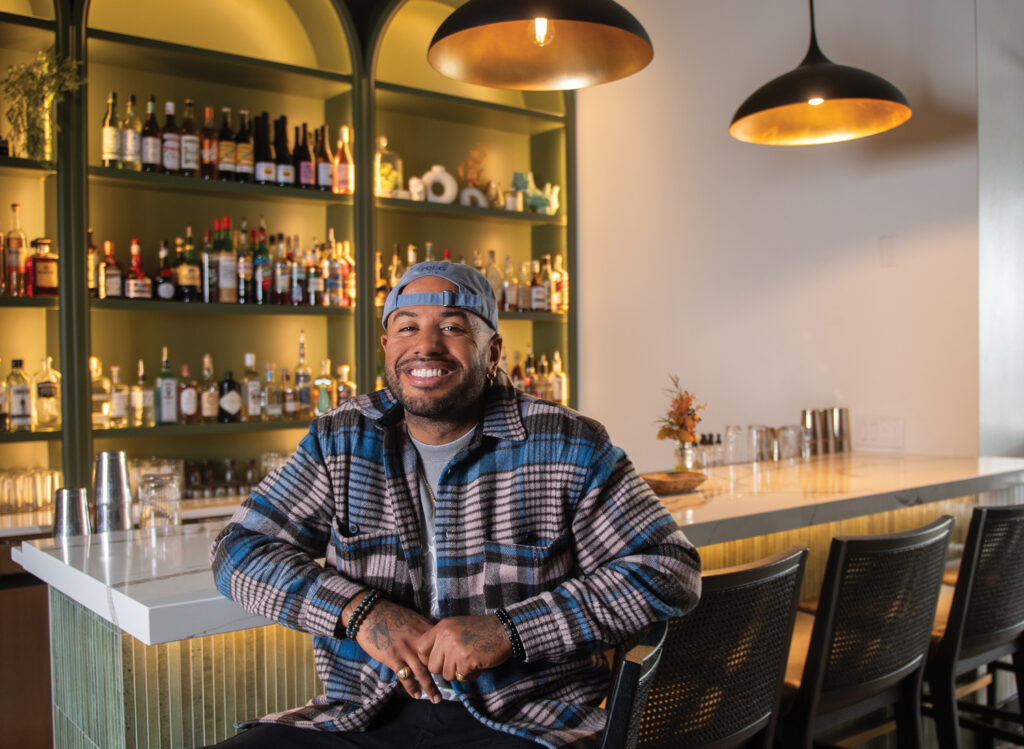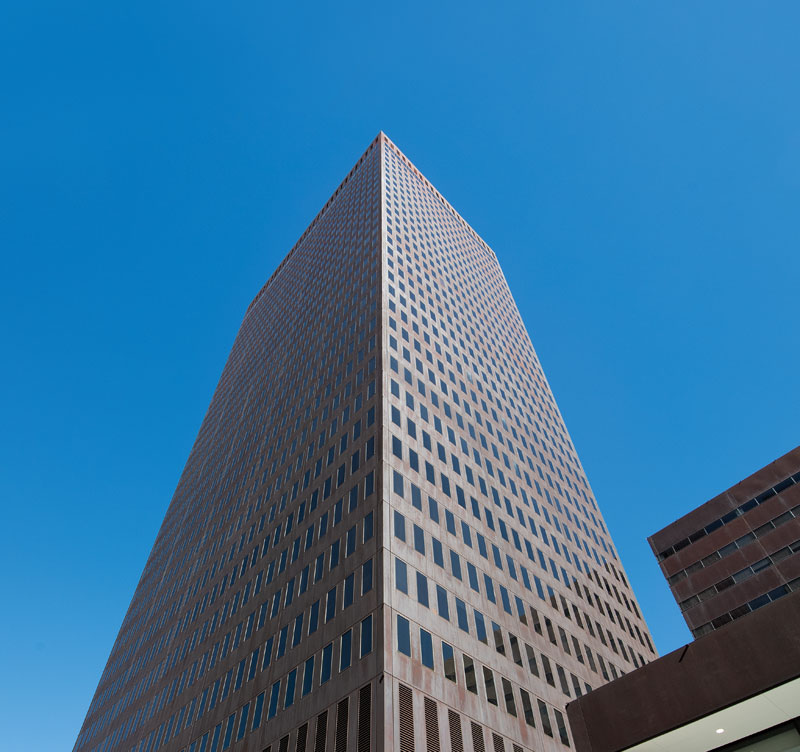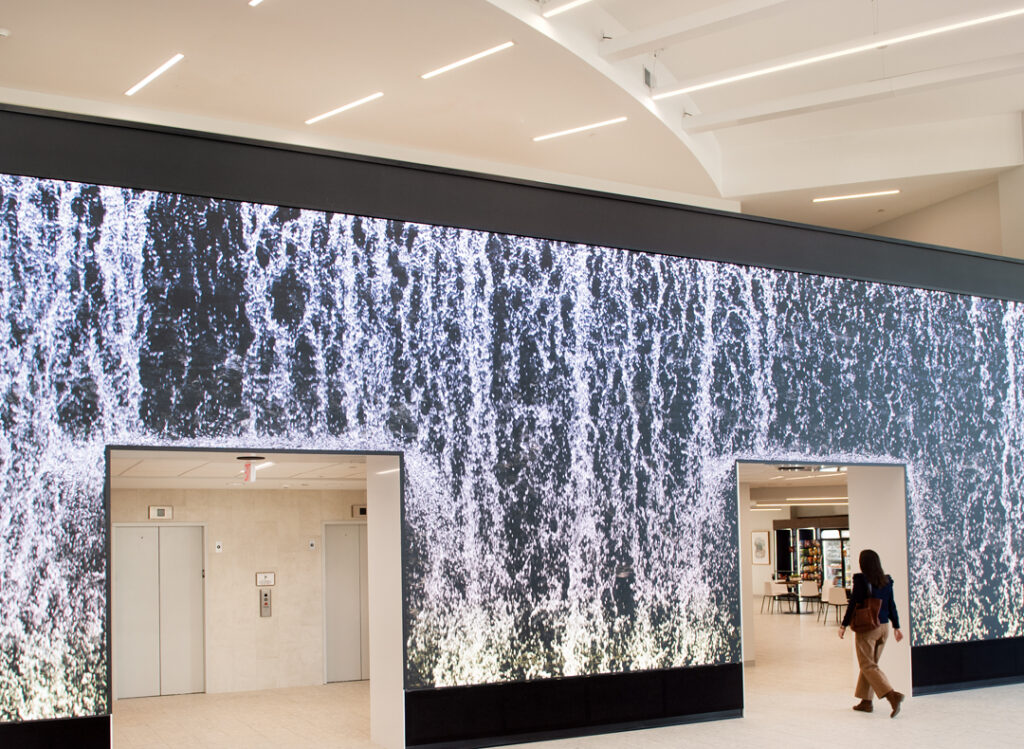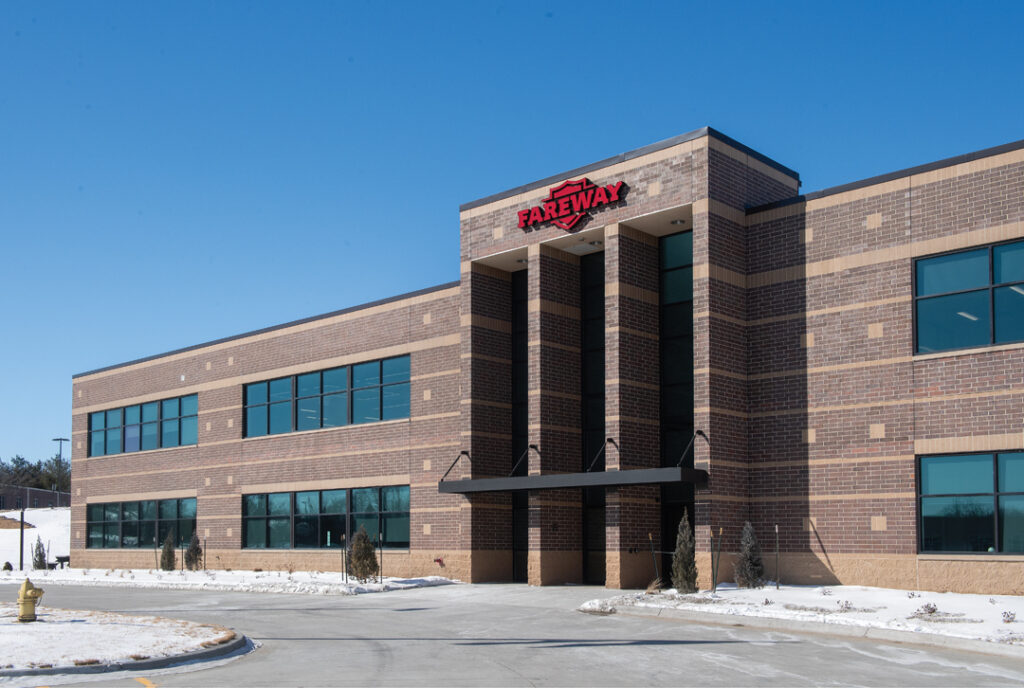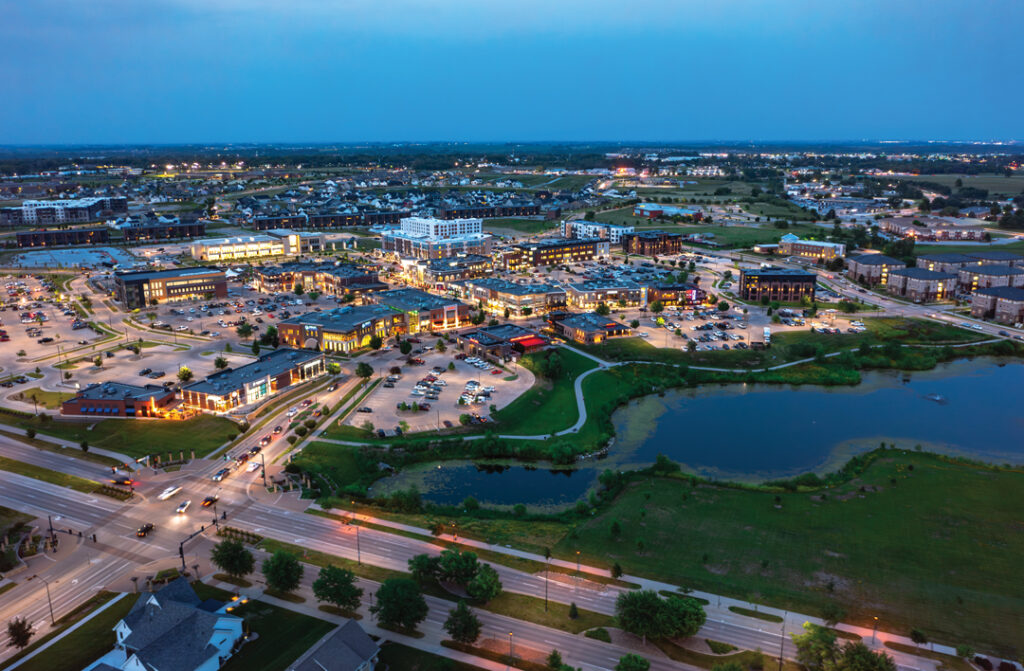Des Moines-area hotel property values fall 30%
‘When the cash flow goes away, the value goes away,’ says one local banker

KATHY A. BOLTEN Apr 7, 2021 | 3:53 pm
9 min read time
2,203 wordsBusiness Record Insider, Real Estate and Development
For over a year, more than half of the Des Moines area’s 13,000 hotel and motel rooms have sat empty, a result of the economic shutdown caused by the pandemic.
The sudden drop of hotel guests caused revenues to plummet and employees to be furloughed or laid off. In March, the Polk County Assessor’s Office released information showing a 30% decline in assessed valuation of the county’s 123 hotel and motel properties, from a total $634.4 million in value in 2020 to $450.7 million in 2021.
Individually, the Hilton Des Moines Downtown’s property at 435 Park St. fell to $29.3 million in 2021 from $41.9 million in 2020, assessor data shows. Adventureland Inn at 3200 Adventureland Drive in Altoona saw its property value slip to $23 million in 2020 from $32.8 million in 2021.
Nationally, the value of hotel properties dropped between 20% and 40%, Polk County Assessor Randy Ripperger said.
“We know that our market is different from other markets across the United States, but we think the effect from the pandemic was pretty universal across the country,” he said.
The large decline in property values is justified, Craig Walter, executive vice president of the Iowa Lodging Association, said.
“Our number one activity is getting guests in the doors,” he said. “You can’t pay the bills if you don’t have people coming in the doors. … It makes sense that the property values went down. The values of the properties aren’t as good as they were before the pandemic.”
The decline in property value will mean that hotel properties will generate less property tax revenue for taxing entities such as cities, counties, schools and others. In addition, the decline in overnight guests has meant a drop in hotel-motel tax revenue used to attract tourists and others to Des Moines and to provide financial support for organizations with ties to recreation and cultural activities.
“The drop in valuation hurts, but it wasn’t unexpected,” said Clyde Evans, West Des Moines’ community and economic development director. “I think there’s a lot of pent-up demand of people wanting to get out and do some traveling.”
However, lodging industry leaders aren’t predicting an immediate return to pre-pandemic travel and hotel occupancies, although there are glimmers of optimism.
In March 2020, the average occupancy of Des Moines-area hotels was 34% and the average daily room rate was $86, according to information provided by Greg Edwards, president and CEO of Catch Des Moines. The average occupancy inched up to 39.3% this past March, although the average daily room rate had slipped to $84. In February, the Des Moines International Airport saw 9,100 more travelers pass through its gates than did in January, but travel to and from Des Moines is still more than 50% below where it was before the outbreak of COVID-19.
Edwards told the Des Moines City Council this week that Catch Des Moines, which includes the Greater Des Moines Convention & Visitors Bureau and Des Moines Area Sports Commission, had set a goal of booking 220 events in 2021.
“We really have been struggling to meet that goal up until the last couple months when we’re starting to see some upturn in bookings,” he said.
For example, it was recently announced that in May the new Lauridsen Skatepark on the downtown Des Moines riverfront will host the 2021 Dew Tour competition and festival. The event is expected to attract more than 300 of the world’s top male and female skateboarders. USA Gymnastics and AAU basketball tournaments have recently been booked, as well as the Nike Tournament of Champions that will be held in July, Edwards said.
“Most of our occupancy is based on either activities that we are getting in here or leisure travel of people who want to get away,” he said.
How COVID affected the local hotel industry
Since March 2020, when the pandemic shut down much of the hospitality industry, 377 events have been canceled in the Des Moines area, resulting in more than $317 million in lost revenue for the local economy, Edwards told the Des Moines council.
The fallout from the canceled events devastated the local hotel industry, he said.
In July and August, hotel occupancy in the metro area averaged 49% and 53%, respectively, according to information provided by Edwards. Before COVID, occupancies ranged between 60% and 75%, depending on the time of year and events that were going on, he has said. In addition, the average daily room rate last July and August was about $86 in the metro area, compared with nearly $140 before COVID.
During the past year, about 10,500 of the estimated 21,000 people who worked in the industry were laid off, Edwards told the City Council. “We are starting to see some upturn in the occupancy now,” most of which is occurring over the weekends, he said.
Mike Whalen, founder, president and CEO of the Bettendorf-based Heart of America Group, which operates eight hotels in the Des Moines area, said his company’s properties are seeing an increase in travelers with ties to youth and other sports and weddings and leisure travel.
“As we get closer to herd immunity and the vast majority of seniors are vaccinated, you’ll see travel kick in, and I think it’s going to be fast and furious the second half of the year,” he said.
But, he added, “The hole in our world is business travel. … Until the business community that is telling their white-collar business workforce to stay at home and not do any traveling for business [changes course], it’s not going to return to normal.”
Many of the Des Moines area’s hotels rely on business travelers to help fill rooms, especially during the week, Edwards told council members. He said the area’s major corporations expect to begin bringing employees back to the office in the third and fourth quarters.
“Maybe then they may start doing some more travel, but the jury’s still out,” he said.
Financial institutions steer away from new developments
During the past year, many banks deferred principal payments on hotel-related loans but required interest to be paid, sometimes at a lower rate. And while the federal Paycheck Protection Program helped with payroll and some other expenses, fixed costs such as utility payments and maintenance remained, costs some properties struggled to pay, said Jennifer Cooper, vice president and manager at Bankers Trust bank.
It’s not surprising that the value of hotel properties took a huge hit this year, she said. The properties’ value is not only tied to the value of the land and building but also to the financial strength of the business.
“Value is created by cash flow,” she said. “When the cash flow goes away, the value goes away.”
Financial institutions, like hotel property owners, are in a waiting game, she said. “We are all waiting to see if things start to come back. We may be fooling ourselves, but I think we’re all feeling like the June-July time frame – once the bulk of the population is vaccinated – that things will start to come back.”
Once hotels’ cash flows begin to improve, property values will also grow, Cooper said.
Even if occupancies begin returning to pre-pandemic levels, it will likely be a while before banks and other institutions are willing to invest in new hotel projects, Cooper said. In the past year, Bankers Trust has been approached by developers interested in obtaining financing for new hotels proposed in the Midwest.
“We passed on them,” Cooper said. “If the hotel can’t be occupied and be fully stabilized, I don’t think there are any banks that are going to do hotel deals.”
At least six new hotels are proposed in the Des Moines area by entities vying for ability to use state sales and hotel-motel tax money to help pay for projects proposed in their communities. Included is a new hotel at Merle Hay Mall that would be attached to a proposed 3,500-seat arena. A 150-room, eight-story hotel is proposed near a new outdoor stadium at 200 S.W. 16th St. in Des Moines. A 125-room hotel is also proposed between Ingersoll Avenue and High Street in Des Moines.
Hundreds of new hotel rooms were added in the Des Moines area in the past three years. Among them are the 330-room Hilton Downtown Des Moines, which opened in 2018; the Revel Hotel in Urbandale, Hyatt Place Altoona and Fairfield by Marriott in Des Moines, all of which opened in 2019; and the Surety Hotel in downtown Des Moines and Home2 Suites by Hilton across from Drake University, which both opened in 2020.
“We’ve had a tremendous amount of hotel development in the last couple years, and it’s probably overdeveloped,” said Walter of the lodging association. “It’s going to take some time for that occupancy to catch up to where it was [before the pandemic].”
Any new hotel development will take occupancy away from existing properties, he said.
“To build a new hotel now is certainly a greater risk than it was 18 months ago,” Walter said.
What the future holds
As more people are vaccinated against COVID, they are becoming more comfortable with traveling. The Centers for Disease and Control and Prevention at the start of April issued an updated advisory saying that fully vaccinated people can travel safely within the U.S. The advisory includes traveling by airplane.
In February, more than 98,400 people traveled to or from the Des Moines International Airport, a 57% decline from a year ago but more than the 89,500 who passed through the turnstiles in January.
“We’re starting to see more upticks in travel and demand,” said Riley Hogan, a vice president at CBBE|Hubbell Commercial. Events like the National Mountain Dew Tour, youth sports events, the Des Moines Farmers’ Market and others will spark increases in overnight stays at hotels, he said.
“You can see that from where we were in [last] May and June that things are starting to improve,” Hogan said. “We’ll continue to see those upticks that will get us back to where we were in 2019.”
Walter said it will likely be a couple of years before hotels return to the occupancy levels that they were experiencing in 2019 and earlier. He said the key, particularly for hotels located in downtown Des Moines, is for business travel to return to pre-pandemic levels.
“It’s going to be upwards of two years or so for business travel and business conventions to return to the same level as we had 18 months ago,” he said.
Decline of hotel-motel tax revenue
The dramatic decline in hotel-motel tax revenue distributed to cities and counties paints the starkest picture of the effect the pandemic has had on the lodging industry.
Statewide, the amount of hotel-motel tax receipts paid to cities and counties in May, August and November 2019 and February 2020 totaled $61.6 million, Iowa Department of Revenue data shows. In May, August and November 2020 and February 2021, the government entities received $45.8 million, a 25% drop.
In the Des Moines area, which hosts hundreds of conventions, conferences and athletic events each year, the decline was even more extreme.
In the four quarters that ended in February 2020, metro-area jurisdictions received $18.8 million from the pillow tax; a year later, they received $10.4 million, a 45% drop, state data shows. Cities and counties receive hotel-motel tax receipts in months that don’t correspond with traditional fiscal calendars.
The hotel-motel tax revenue stream was “decimated,” said David Jones, Ankeny’s city manager. “I won’t sugarcoat it … hotel-motel [tax revenues] took a beating. That revenue had been growing very rapidly in Ankeny before COVID, and when COVID hit, there was a significant drop.”
Ankeny collected $1.5 million in hotel-motel taxes in the period that ended in February 2020, state data shows. In the 12 months that ended in February 2021, it received $739,324, a 51% decline from the previous year.
Iowa cities and counties use the tax money to promote tourism and support cultural, historic and recreational groups and activities. Ankeny, like most other government entities in the metro area, gives two-sevenths of the revenue each to Bravo and Catch Des Moines. The remainder has been used to expand the trail system and provide funding for holiday light displays and other community amenities.
The amount of money provided in the coming year or more to the regional groups as well as Ankeny groups and projects will be significantly less than what was provided pre-COVID, Jones said. “We’re going to have to slow some of our projects down a bit.”
— KATHY A. BOLTEN
Change in valuation of top 20 Des Moines-area hotel properties
The chart shows the 2021 assessed valuations for the 20 hotel properties in Polk County with the highest values compared 2020. To see all 123 properties, go to bit.ly/3uib5Pq.
Source: Polk County Assessor
More online
To view a map and spreadsheet of 2021 property values of Polk County hotels and motels, go to bit.ly/3uib5Pq
Area cities’ motel-motel tax receipts
The chart shows the amount of hotel-motel tax receipts collected by seven Des Moines-area cities between May 2019 and February 2020 and May 2020 and February 2021.
Source: Iowa Department of Revenue









